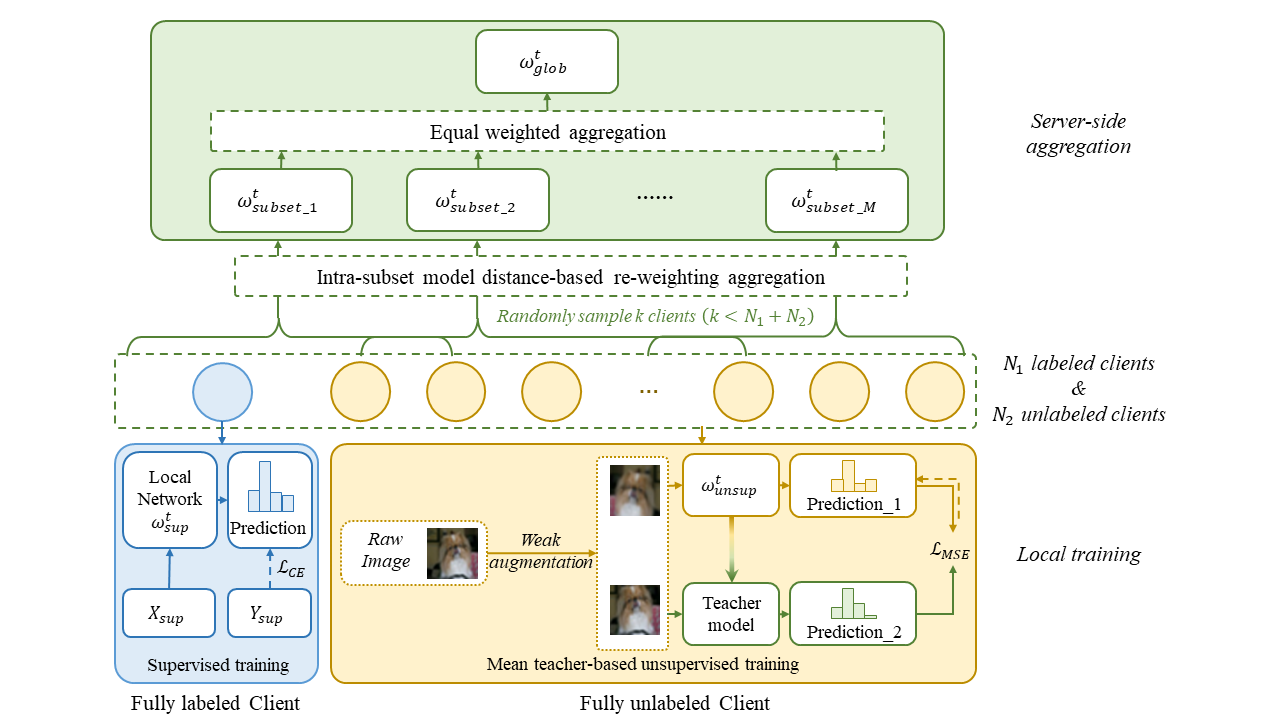RSCFed: Random Sampling Consensus Federated Semi-supervised Learning
Federated semi-supervised learning (FSSL) aims to derive a global model by training fully-labeled and fully-unlabeled clients or training partially labeled clients. The existing approaches work well when local clients have independent and identically distributed (IID) data but fail to generalize to a more practical FSSL setting, i.e., Non-IID setting. In this paper, we present a Random Sampling Consensus Federated learning, namely RSCFed, by considering the uneven reliability among models from fully-labeled clients, fully-unlabeled clients or partially labeled clients. Our key motivation is that given models with large deviations from either labeled clients or unlabeled clients, the consensus could be reached by performing random sub-sampling over clients. To achieve it, instead of directly aggregating local models, we first distill several sub-consensus models by random sub-sampling over clients and then aggregating the sub-consensus models to the global model. To enhance the robustness of sub-consensus models, we also develop a novel distance-reweighted model aggregation method. Experimental results show that our method outperforms state-of-the-art methods on three benchmarked datasets, including both natural and medical images. The code is available at https://github.com/XMed-Lab/RSCFed.
PDF Abstract CVPR 2022 PDF CVPR 2022 Abstract

